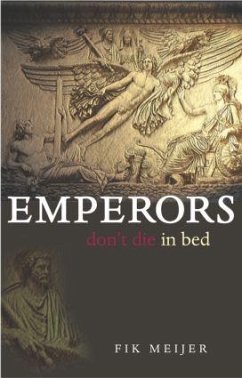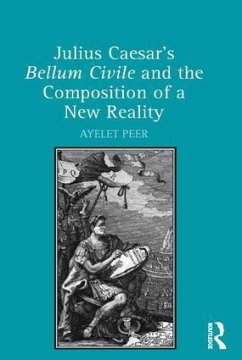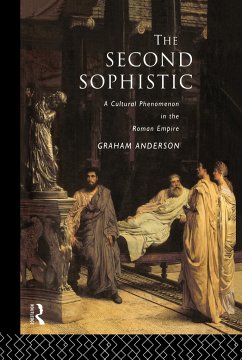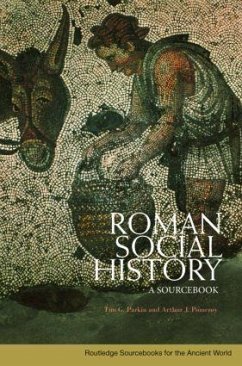
Bandits in the Roman Empire
Myth and Reality
Übersetzung: Drinkwater, John
Versandkostenfrei!
Versandfertig in 1-2 Wochen
188,99 €
inkl. MwSt.
Weitere Ausgaben:

PAYBACK Punkte
94 °P sammeln!
The book aims to show how the concept of the bandit was taken up and manipulated during the Late Roman Republic and early Empire (2nd c.BC - 3rd c. AD.)
This wide-ranging and informative survey of 'outsider' groups in the Roman Empire will contribute greatly to our understanding of Roman social history.
Examining men such as as Viriatus, Tacfarinus, Maternus and Bulla Felix, who were called latrones after clashing with the imperial authorities, special attention is given to perhaps the best-known 'bandit' of all, Spartacus, and to those who impersonated the emperor Nero after his death. Topics covered include:
_ Whom did the Romans see as bandits (latrones)?
_ What did they understand as robbery (lactrocinium)?
_ How pressing was the threat that the bandits posed?
_ How did their contemporaries perceive the danger?
We are shown that the term latrones was not just used to refer to criminals but was metaphorically and disparagingly applied to failed political rebels, rivals and avengers. The word also came to represent the 'noble brigands', idealising the underdog as a means of criticising the winning side. The author therefore presents 'the bandit' as a literary construct rather than a social type.
Examining men such as as Viriatus, Tacfarinus, Maternus and Bulla Felix, who were called latrones after clashing with the imperial authorities, special attention is given to perhaps the best-known 'bandit' of all, Spartacus, and to those who impersonated the emperor Nero after his death. Topics covered include:
_ Whom did the Romans see as bandits (latrones)?
_ What did they understand as robbery (lactrocinium)?
_ How pressing was the threat that the bandits posed?
_ How did their contemporaries perceive the danger?
We are shown that the term latrones was not just used to refer to criminals but was metaphorically and disparagingly applied to failed political rebels, rivals and avengers. The word also came to represent the 'noble brigands', idealising the underdog as a means of criticising the winning side. The author therefore presents 'the bandit' as a literary construct rather than a social type.














